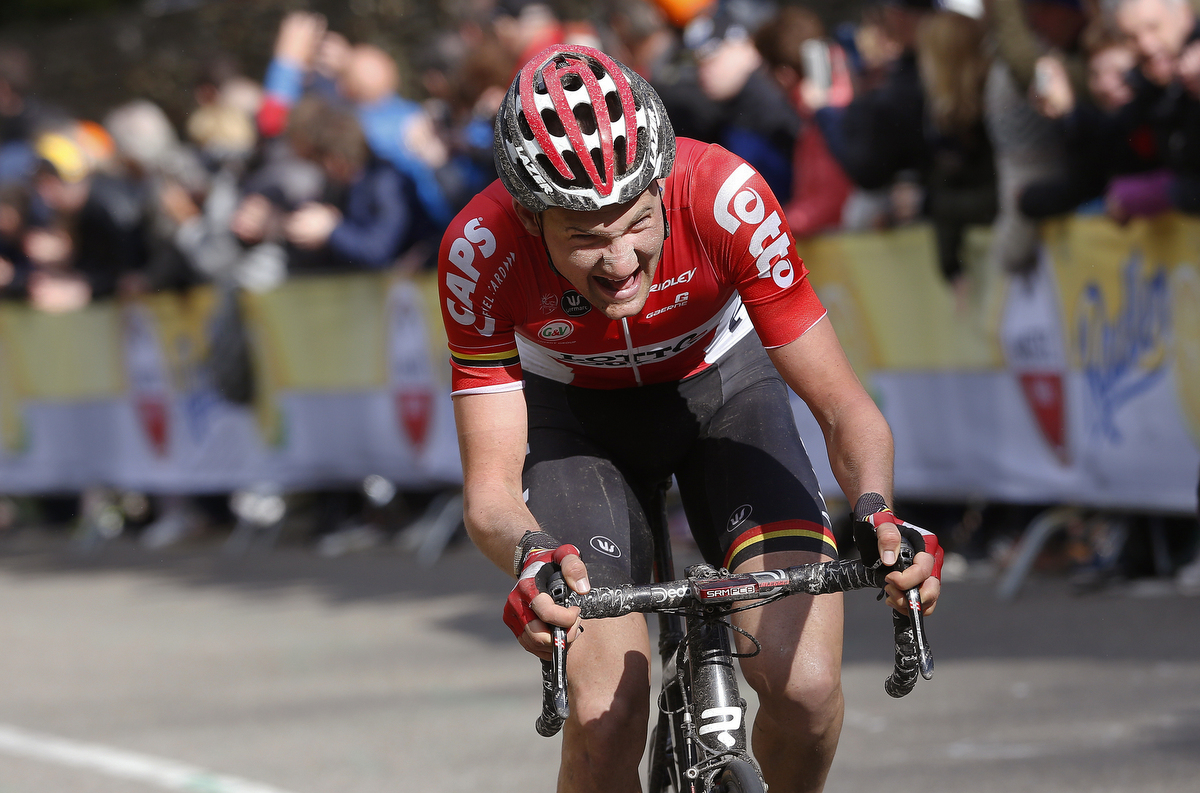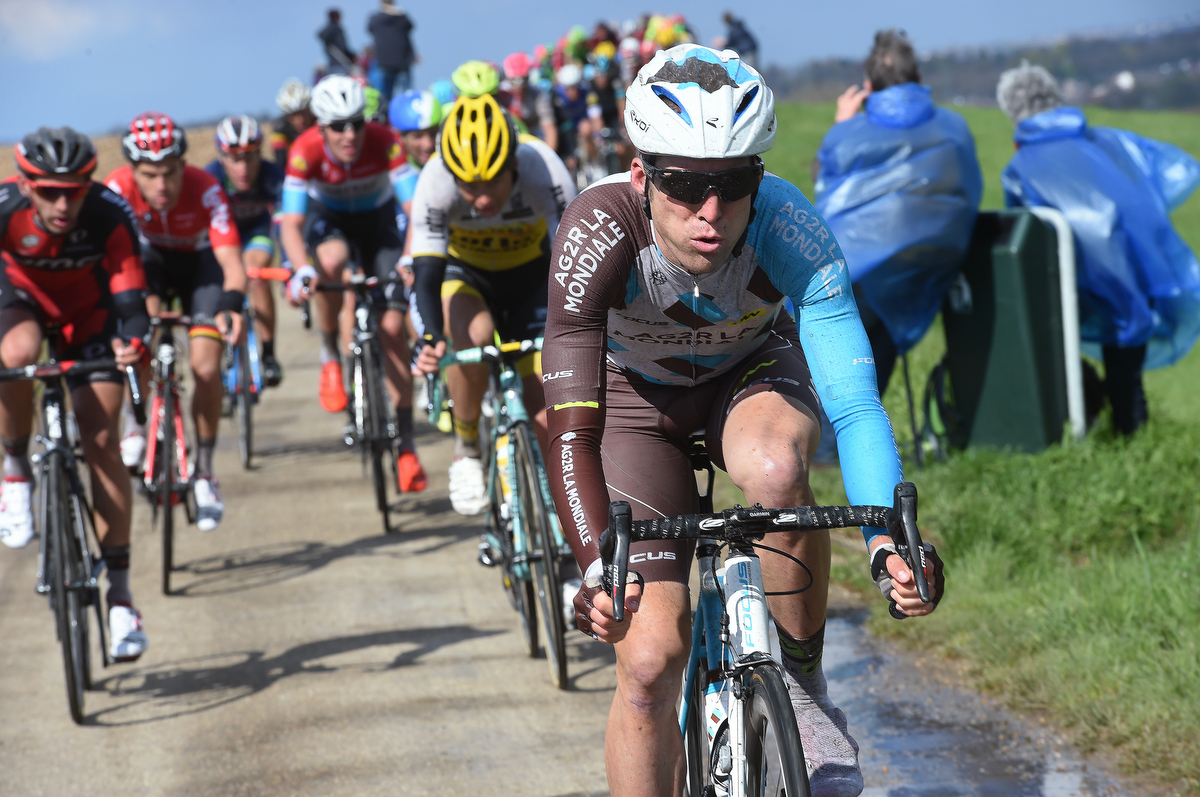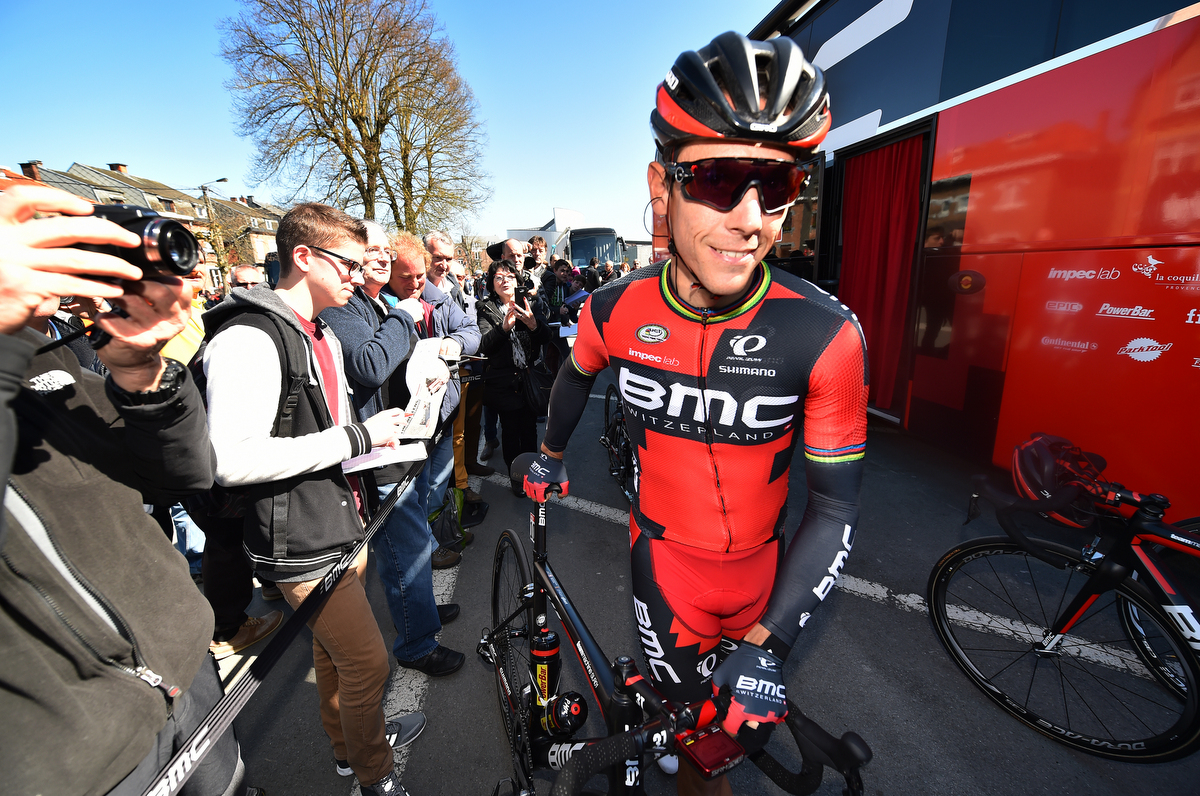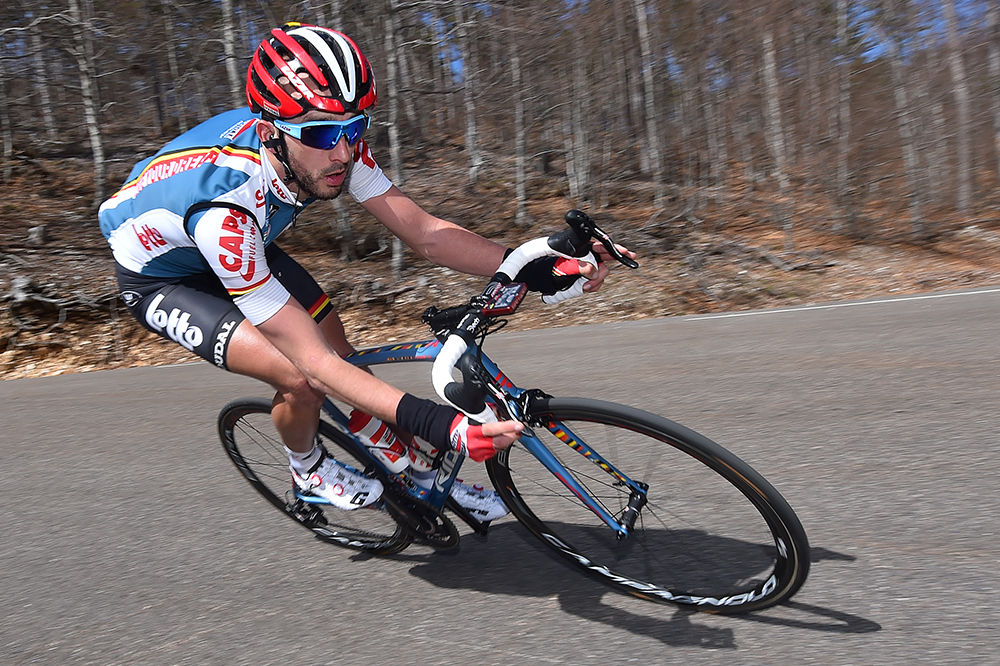Local riders fail to shine in Belgium’s Fleche Wallonne
Vanendert best Belgian in 18th place




As the smell of frites and beer slowly fades for another year from the steep fields that flank the Mur de Huy, on Thursday morning the Belgian media took a gloomy view of how the host nation’s riders had fared in the Fleche Wallonne.
Broken collarbone for Frank Schleck after Fleche Wallonne crash
Valverde moves into class of his own with fourth La Fleche Wallonne victory
Poels makes his case for Olympic selection with fourth place at Fleche Wallonne
Gilbert battles on in La Fleche Wallonne despite broken finger
Van der Breggen climbs UCI Women's WorldTour rankings after La Fleche Wallonne win
As a team, with Ireland’s Dan Martin and France’s Julian Alaphilippe in second and third place, Belgium’s Etixx-Quick Step squad had clearly provided the strongest and most tenacious opposition to Alejandro Valverde’s continuing domination in Fleche Wallonne.
But in terms of Belgian riders, rather than teams, Jelle Vanendert (Lotto-Soudal) in 18th place was the host nation’s best performer, and although his compatriot and teammate Tim Wellens succeeded in sparking a few cheers from the crowds on the Mur when he broke away on the Cote de Cherave, Wellens later told Belgian newspaper La Dernière Heure his attack had been “stupid.”
“Worst results at Huy for Belgian riders since 2006!” blasted one headline in another local newspaper Sud-Presse, which pointed out that the last time Belgium had only one rider in the top 20 of Fleche Wallonne like in 2016, was exactly a decade ago. Vanendert’s 18th place, in fact was the worst result since Philippe Gilbert (BMC Racing) took 18th in 2007.
Whilst Gilbert’s injuries yesterday mean that the country’s top Ardennes racer of recent years is completely out of the equation, Wellens argued that he would have preferred to have waited until the Mur de Huy to make a move.
“I wanted to wait, as we had originally planned with the team, I wanted to go for it on the Mur where I was almost certain to take a top placing,” he told La Dernière Heure.
“Unfortunately, we’d also decided that one of our three protected riders (Wellens, Tony Gallopin and Vanendert) would have to go after any breakaways and the problem was that it hadn’t been specified which one of the three that would be.”
Get The Leadout Newsletter
The latest race content, interviews, features, reviews and expert buying guides, direct to your inbox!
With Bob Jungels (Etixx-QuickStep) and Ion Izagirre (Movistar) already up the road, “On the Cherave I was well-placed, so I went for it,” Wellens recounted. “With hindsight, that was a stupid thing to do. There wasn’t much collaboration when I bridged across and, even if there had been, I don’t think we’d have made it to the finish.”
Whilst Vanendert, 18th, said that he had been badly positioned at the foot of the Mur and paid a high price as a result, his compatriot Jan Bakelants (AG2R La Mondiale), second best Belgian on the day, argued in Sud-Presse that the collective level of performance in the Ardennes Classics was much higher than in cobbled one-day races. As a result, getting a good result was much harder.
“I love the Flemish Classics but you have to be honest, at Flanders or Roubaix, half the teams are there under duress rather than because of ambition,” Bakelants told the newspaper. “Here, in contrast, the average level is much higher, it’s very competitive. You just have to look at the speed of the racing despite the climbs, it’s a tough fight for five hours.”
Bakelants was hopeful, however, that Sunday would be a more open race, and with Roman Bardet and Domenico Pozzovivo reinforcing AG2R La Mondiale’s line-up for Liège-Bastogne-Liège, there would be more options for the French squad on the table. Whether the host nation’s riders rather than France’s Bardet and Italian Pozzovivo could turn in a better performance, though, remains to be seen.
Alasdair Fotheringham has been reporting on cycling since 1991. He has covered every Tour de France since 1992 bar one, as well as numerous other bike races of all shapes and sizes, ranging from the Olympic Games in 2008 to the now sadly defunct Subida a Urkiola hill climb in Spain. As well as working for Cyclingnews, he has also written for The Independent, The Guardian, ProCycling, The Express and Reuters.
